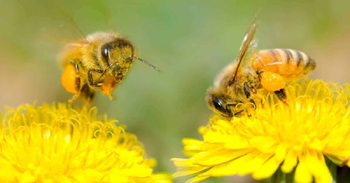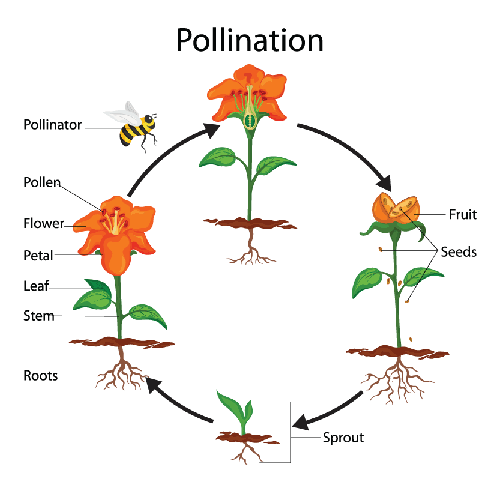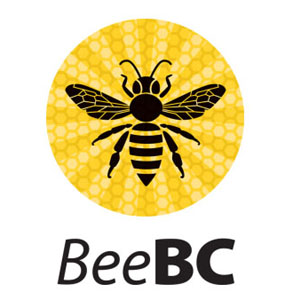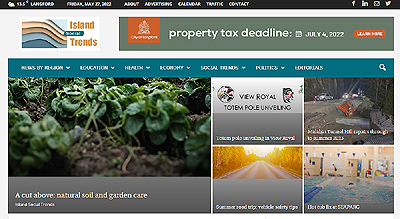Monday May 30, 2022 | VANCOUVER ISLAND, BC
by Mary P Brooke | Island Social Trends
The pollination of plants — especially important for food-producing crops — depends on the work of bees.
To recognize the role honey bees in the daily lives of British Columbians and the B.C. agricultural industry, May 29 was proclaimed the Day of the Honey Bee.
“Honey bees and pollinators may be tiny but they contribute so much to our food supply, our ecosystem and our daily lives,” said Lana Popham, Minister of Agriculture and Food.
Bee BC Program:
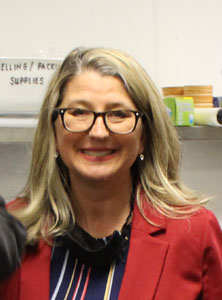
“I’m passionate about supporting BC bees and our amazing beekeepers, and I am thrilled we are extending the Bee BC programs so we can continue to see community projects around the province that promote bee health while boosting our food security and food economy at the same time.”
The Bee BC program has supported nearly 90 community-led projects since 2018, helping with research, hive sustainability and public awareness and education. The program is being extended for three years through $225,000 of new funding to support more regional and community-based projects that promote bee health in the province. Application intake opens May 30, 2022.
Program experiences:
“Country Bee Honey Farm graciously accepted the Bee BC grant in 2021, and this funding was used to purchase plants and seeds to plant a massive variety of flowers to help all sorts of pollinators on the Saanich Peninsula. It also allowed us to create educational signage and pamphlets to educate guests on our farm for years to come,” said Lindsay Dault, owner and beekeeper, Country Bee Honey Farm. “Without this grant, these projects would not have been possible and we are so very grateful to have been awarded it.”
Heather Higo, president, BC Honey Producers Association (BCHPA), said: “Bee BC and the Bee Tech Transfer program are welcome efforts by the Province to improve bee health and reduce honey bee losses. We thank Agriculture Minister Lana Popham for her considerable support and continued interest in improving pollinator health in B.C. This translates into better food security for British Columbians, through improved food systems and gives beekeepers access to important tools and support in their continued efforts to keep bees safe.”
Additionally, the Province partnered with the BCHPA in 2021 to support the new Bee Tech Transfer Program. The program provides $525,000 over three years to deliver education, applied research and other services to B.C. beekeepers.
===== Quick Facts [Source: BC Agriculture & Food]:
* Honey bees and native pollinators have a crucial role in B.C.’s sustainable food system and contribute an estimated $250 million to $300 million per year to the provincial economy.
* In 2021, 4,300 B.C. beekeepers managed approximately 62,000 colonies in the province that produced nearly two million kilograms of honey.
* Through the Bee BC Program, regional or community-based organizations, beekeeping associations and beekeepers can receive as much as $7,000 for projects that promote bee health in the province.
* Since launching the Bee Tech Transfer Program, the BCHPA has engaged with approximately 1,000 beekeepers on standardized knowledge and best management practices for integrated pest management, overwintering, bee health outcomes, effective pollination and breeding for regionally hardy queens and bees.
* Communities throughout Canada celebrate May 29 as Day of the Honey Bee to honour New Zealand beekeeper and mountaineer Sir Edmund Hilary’s ascent of the summit of Mount Everest on that day in 1953.
===== GOVERNMENT LINKS:
More about Bee BC: https://iafbc.ca/bee-bc/
Additional info on bee health and previously funded Bee BC projects: http://bcbeehealth.ca/
Information about the Ministry of Agriculture and Food’s apiary program: https://www2.gov.bc.ca/gov/content/industry/agriculture-seafood/animals-and-crops/animal-production/bees
Bee Tech Transfer program: https://bchoneyproducers.ca/bchpa-technology-transfer-program-2021/
===== BEE BC Projects funded in 2021:
The following projects were funded in the province through the 2021 intake of the Bee BC program:
BCHPA, Central Cariboo: Sterilized frames and boxes of hives to eliminate lingering disease and pathogens, such as European foulbrood on honeycomb, to help the region’s bees build colonies in clean hives.
BCHPA, North Okanagan: Planted a mix of drought and heat tolerant plants; tested cutting alfalfa at 5% bloom and rejuvenating alfalfa growth for a second pollination in early fall.
Bee Awareness Society: Provided an educational program for schools in the Kootenays region teaching the life cycle of the honey bee, the importance of pollination and what students can do in their own backyards to attract pollinators and keep them healthy.
BEEKind Honey Bees: Increased available native non-invasive pollinator forage with high values in pollen and nectar sources during the summer.
Campbell’s Gold Honey Farm and Meadery: Increased the amount of forage and nutrition available to bees year-round.
Country Bee Honey Farm Ltd.: School tours of the farm; ladybug release events to educate the public on their importance to bees and plants; honey extraction demonstration events; seed collection from pollen producing plants in late summer and fall.
Cowichan Beekeepers Society: Developed, improved and streamlined the delivery of learning materials with specific issues concerning bee health for farmers, local governments, local businesses and commercial apiaries.
Dunbar Community Center Association: Engaged in outreach to target bee health through their apiary’s regular maintenance and the encouragement of local beekeepers to maintain the health of their colonies.
Hives for Humanity Society: Planted forage and supported bee habitat through pollinator meadows and community education.
Honey Bee Zen Apiaries Ltd.: Focused on making sterilization transportation services available to beekeepers in the Kootenays.
Janet Simpson, and Lyall and Victoria Acheson (beekeepers): Reduced the housing stressors of bees by creating a hive that recreates the conditions of their natural home in a tree trunk to test their theory that biologically appropriate housing will support bees own natural defences against Varroa (parasitic mites).
Mark Schilling (beekeeper): Used forward-looking infrared camera to capture thermal images of colonies, which is a non-invasive indication of colony size. In winter months, this tool can indicate whether the colony is still alive and the size and location of it within the hive.
Martin Buhler and Jessica Stanley (beekeepers): Planted approximately 1,097 square metres (3,600 square feet) of lavender on their farm for forage to provide nectar and pollen for bees.
North Okanagan Beekeepers: Helped control diseases and prevent the spread to other bee operations by irradiation sterilization of hives in the Okanagan Valley and the Armstrong and Salmon Arm area.
Robson Valley Beekeepers Association: Provided junior beekeepers information and mentoring on hive health and strength during the spring and summer months in preparation for overwintering, along with classroom instruction through the winter months to help their understanding of beekeeping.
Rushing Rivers Apiaries: Measured the overwintering conditions of five-frame nucleus colonies in two different box types, polystyrene and wood, to compare the interior hive conditions during the winter.
Smithers Beekeeping Club: Collected pollen throughout the season from co-operator apiaries throughout B.C. as samples, and catalogued, identified and compared the data of each individual colony performance throughout the year.
Wild Antho: Replanted 16 hectares (40 acres) of native pollinator friendly plants to provide bee forage.
Zand Farm: Planted annual and perennial native plants in early spring and fall to help address crucial times in the colony lifecycle.


